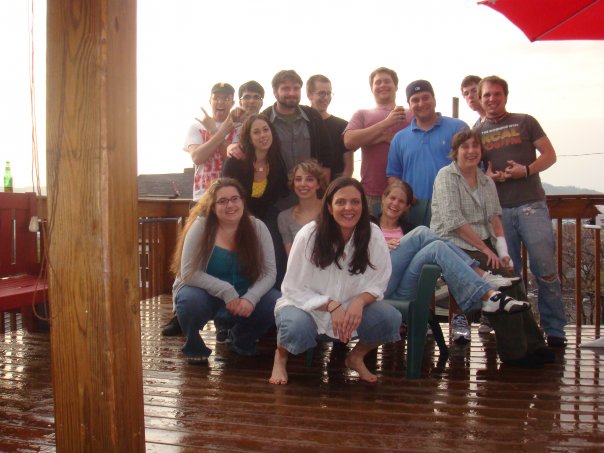I know someone who took a Novel Workshop in college. This is how it went down.
First, they studied the first sentences of a bunch of novels and wrote one of their own, then workshopped it.
Then they studied first paragraphs of novels and expanded their first sentences into first paragraphs and workshopped those.
Then they studied first chapters of a few novels and wrote one of their own, then workshopped their chapters.
And then the semester was over.
I’m sorry, but I think that’s a pretty stupid way to encourage the writing of novels in a creative writing class.
Most courses labeled “Fiction Workshop” are actually “Short Story Workshop.”
Nobody says you must write a short story, but that’s what everybody does anyway.
Why?
Whether we’re aware of it or not, we transmit this subextual message to our students:
“You will learn to tell a story in 8-15 pages. If you are a budding Lydia Davis, you must artificially inflate your story so that we will not think you’re lazy. If you’re a budding Tolstoy, you must artificially deflate your story because more than 15 pages makes us very cranky. Please don’t write a story that is nonrealistic, because genre fiction makes us nervous and uncomfortable. Unless you’re doing a Saunders thing. We like George Saunders. If you want to do a Saunders thing, fine. Otherwise, no. Convey your story in a scene (or two) in the aesthetic mode of realism, preferably minimalism. We like minimalism. Show don’t tell is-amazingly-a quite teachable concept in an otherwise subjective discipline. Show don’t tell is reassuring, like a lucky sweater, like “Sweet Home Alabama” on the jukebox. The opposite of show don’t tell, the tell tell tell of artful narration, well, that’s complicated and hard to do well, so perhaps you shouldn’t really try that. As an added bonus, show don’t tell virtually guarantees that your story will be mercifully short. Think Hemingway, not Faulkner. Think Carver, and certainly not Coover.”
Here’s one simple thing you can do to encourage the making of big things in your writing workshop or your writing practice: don’t call it a story. Call it a manuscript.
Show them an example of a book manuscript: cover page with title and contact information, table of contents, epigraph, even maps and photographs, if they wish. I teach them to use the abbreviation “TK,” the printing reference that signifies that additional material will be added at a later date. If they think their big thing will be comprised of eight stories, but they’ve only written two and a half and the other five are still in their heads, I tell them, yes, it’s okay to give us two and a half stories, to give us placeholder titles, maybe even short synopses of what is “to come.”
I don’t put the word story in my syllabus, and I don’t use it in class. I say, “So, how are you doing on your manuscripts?”
“Turn in around 15 pages of your manuscript to discuss. This can be one 15-page short story, or two 6-page stories, or fifteen 1-page stories, or one 2-page story plus one 12-page story. It’s your manuscript. You decide.”
“Remember, your manuscript is due this week.”
And later, one of my students came to my office and said, “I have a question about my manuscript.”
She didn’t say “my story.”
And she certainly didn’t say “my paper.”
She’s working on a manuscript, a big thing.

